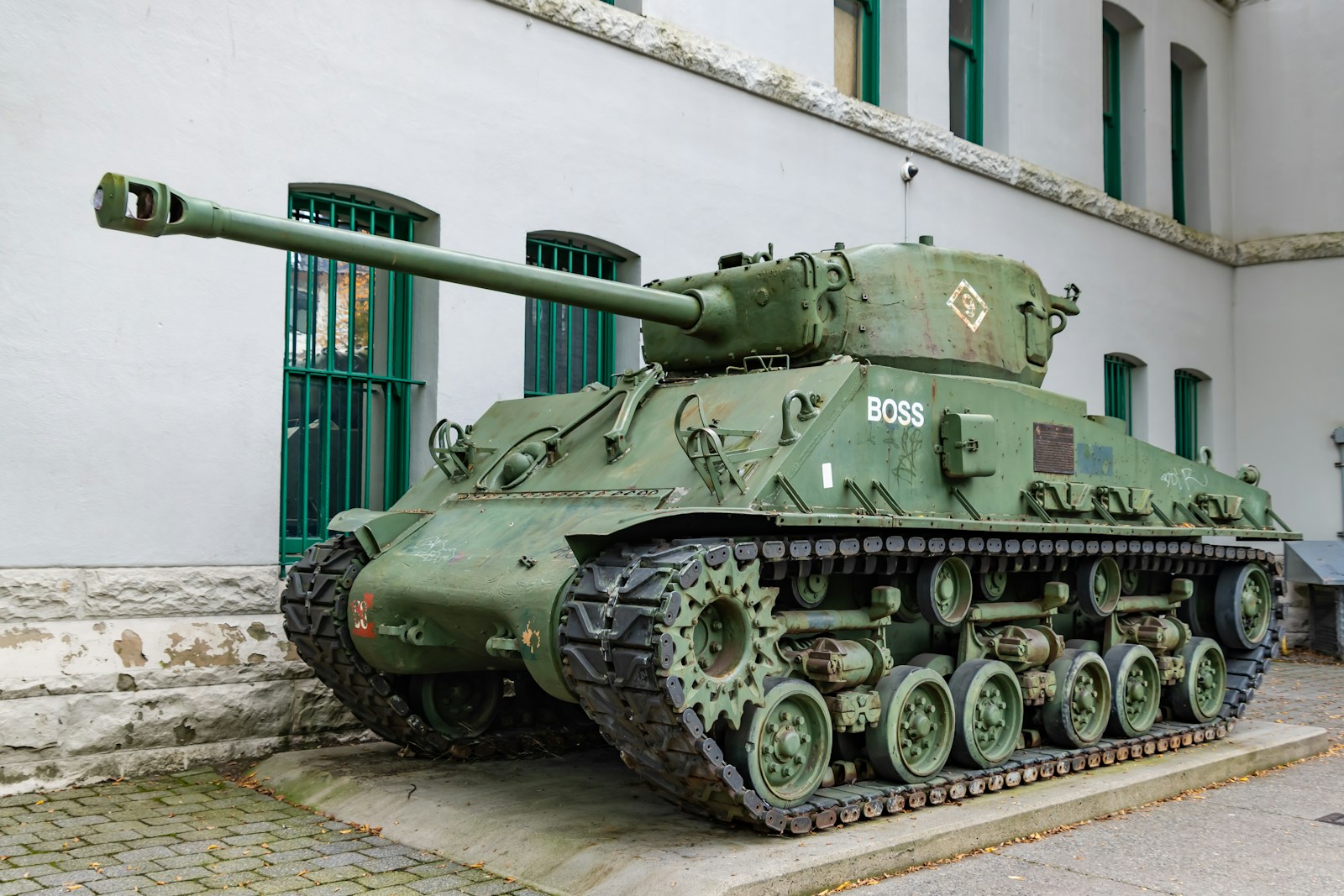
坦克
tǎn kè

tank
In Chinese, '坦克' refers to the heavy armored fighting vehicle carrying guns and moving on a continuous articulated metal track. It is used in the same way as the English word 'tank' - it can be used both in a military context or to describe a container or receptacle. It also has additional meanings, such as a criticism catcher or, by extension, a tough person.
Example sentences using: 坦克
我在游戏中驾驶了一个坦克。
Wǒ zài yóuxì zhōng jiàshǐle yīgè tǎnkè

I drove a tank in the game.
In this sentence, 'tank' is the object of the driver in the game.
这家博物馆有许多二战时期的坦克。
Zhè jiā bówùguǎn yǒu xǔduō èr zhàn shíqī de tǎnkè

This museum has many tanks from World War II.
This sentence refers to a museum that has a collection of tanks from World War II.
我们正在观察那个坦克的动态。
Wǒmen zhèngzài guānchá nàgè tǎnkè de dòngtài

We are observing the movement of that tank.
In this sentence, the subject is observing the movement of a particular tank.
我爱好研究坦克的历史。
Wǒ àihào yánjiū tǎnkè de lìshǐ

I enjoy studying the history of tanks.
This sentence tells us about a person who enjoys learning about the history of tanks.
坦克是那个电影的重要元素。
Tǎnkè shì nàgè diànyǐng de zhòngyào yuánsù

The tank is an important element of that movie.
This sentence is about a movie where the tank plays a prominent role.
他在模型店买了一个坦克模型。
Tā zài móxíng diàn mǎile yīgè tǎnkè móxíng

He bought a tank model from the model shop.
This sentence describes a person buying a model of a tank from a model shop.
坦克部队正在进行训练。
Tǎnkè bùduì zhèngzài jìnxíng xùnliàn

The tank troops are training.
This sentence describes a scene where tank troops are in the middle of training.
她对坦克设计很感兴趣。
Tā duì tǎnkè shèjì hěn gǎnxìngqù

She is very interested in tank design.
This sentence tells us that someone is very interested in the design of tanks.
孩子们在公园里玩坦克玩具。
Háizimen zài gōngyuán lǐ wán tǎnkè wánjù

The children are playing with tank toys in the park.
In this sentence, children are playing with toys in the shape of a tank in a park.
坦克在战场上是非常强大的。
Tǎnkè zài zhànchǎng shàng shì fēicháng qiángdà de

Tanks are very powerful on the battlefield.
None